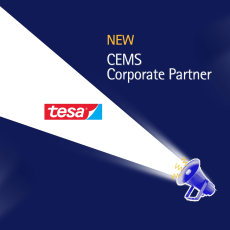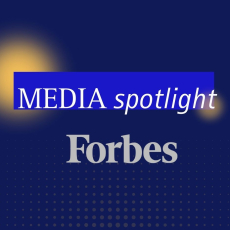1. Please tell us about yourself: What do you do? When and where were you a CEMS student?
I am a Board Member at 42 Prague, a non-profit peer-to-peer IT educational institution empowering the next leading generation of tech talent in Central and Eastern Europe. I was responsible for its launch in 2022 as a CEO; now I am contributing to the strategic development, as well as playing with some exciting projects on the intersection of AI, education and art in my free time.
I am a visiting lecturer on AI in Business Processes at European School of Business and Management, and a proud mom of a three-year-old. I was a CEMS student at the Prague University of Economics and Business in 2015-2017, with Louvain School of Management as an exchange school.
2. Could you please tell us about your expertise in IT and education in more detail? How did you decide to follow this path after CEMS? What do you consider to be your mission?
I studied IT management before; during CEMS, I spent my semester abroad in Belgium, working on a RPA-focused project for McKinsey New Ventures. This led me to more curiosity towards automation - and later on, I worked in a small privately funded AI research lab, as well as in an industrial automation company - being in charge of building its software product portfolio, and co-founded a company in this field. At the same time, I was invited to be a visiting lecturer on the topic of AI in Business Processes for European School of Business and Management - and this was very tempting, because education is the vital part of enabling companies to leverage the new technologies while focusing on the problem-driven, not tech-driven solutions.
On the mission of establishing 42 Prague, a free educational non-profit institute and a member of global 42 Network, I had an opportunity to disrupt both the tech and educational landscape. 42 challenges the traditional learning model and provides an industry-leading education for free with no teachers, classes or books. Through our educational model, students are trained to become qualified software engineers and design inclusive solutions for the challenges of today and tomorrow.
3. What are your thoughts on the growing popularity of artificial intelligence? How do you think artificial intelligence will change the way businesses operate in the future?
We live in unprecedented times of wide accessibility and deployment of AI: for the first time in the history of the field, it’s no longer hidden ‘’under the hood’’, but becomes a consumer technology that millions of people have at their fingertips. AI is a wide-ranging tool that enables people to rethink how we work with information, analyze data, and use the resulting insights for enhanced decision making. It is changing the labor market, allowing for more efficiency and automation, stimulating businesses to delegate workload and optimize processes.
At the same time, though, these developments raise important policy, regulatory, and ethical issues. To address the societal and economic implications of the rapid AI adoption, besides robust regulation, we need a safe and human-centered AI ecosystem - and that is still under construction. Impressive as they are, it is crucial to retain a healthy skepticism towards these technologies, since they are constantly evolving and frequently under-tested.
4. What top 3 things would you advise current CEMS students?
- Keep close focus on the technological trends, but always do your due diligence to be mindful of the potential bubbles.
- Take time to form authentic connections - in the long run, close friendships from CEMS are much more valuable then LinkedIn connections.
- Do not be afraid to take professional risks, they can be the most valuable lessons you’ll receive.




